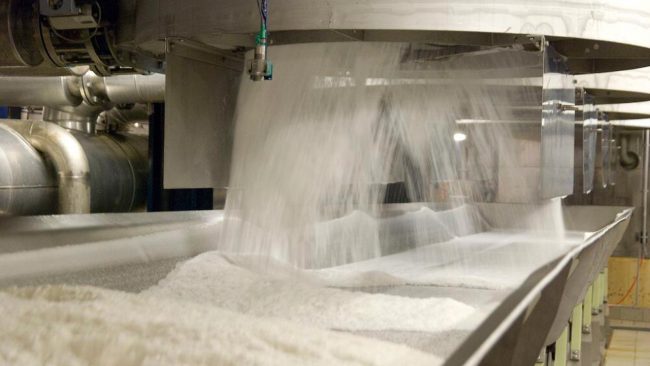The Director, Policy Planning, Research and Statistics, National Sugar Development Council (NSDC), Mr. Kolawole Hezekiah, has said Nigeria is expected to generate between 600,000 to 750,000 metric tons of sugar annually by 2023 as the country continuously strives to achieve its Sugar Master Plan.
He said this yesterday at the second Nigeria Sugar Technology Symposium in Lagos.
He also urged upcoming sugar producers to build plants that generate power from sugarcane production to cushion Nigeria’s power deficit.
Speaking on the side-lines on the state of sugar production nationwide, Hezekiah said: “Our demand for sugar is high but we are approaching an advanced stage whereby when all the investments have come to fruition, we should be harnessing between 600,000 to 750,000 metric tons of sugar and this would come up by 2022 to 2023.
“The projection is that Nigeria should be able to produce 1.8 million metric tons of sugar on an annual basis and by the time we are able to fully implement the Nigerian sugar master plan and generate about 411 megawatts of electricity.
“So it is from all companies that it would harness. They would utilise some of it and they can also sell the national grid for the benefit of the whole country.
“We are very much on track on the policy. The policy we have is being implemented fully Yes, there are challenges, but it is also being addressed along the way.
“We are full of hope and we believe that at the end of 10 years of implementation like I said the projection is 1.8 million metric tons but we should be able to get around half because of the various challenges.”
On what prompted the stakeholders’ meeting, he said: “We have brought experts from the Netherlands to speak on irrigation system and they are going to expose the participants to the kind of irrigation infrastructure that is available that our operators can take advantage of and they can also improve the efficiency of sugar production as well as generation of power.”
Speaking further on power generation, he added: “What we are advising all upcoming companies is to have an integrated factory system because there are so many co-products of sugar production which includes power generation and electricity.”
Commenting on the need to harness biofuels from sugarcane factories, Senior Technologist, Engineer at BMA Germany, Dr. Fahim Brahim, urged the federal government to closely consider using the by-product from sugarcane factories to complement power generation.
Brahim said: “Power generation is a big issue and if there is a willingness from the government to improve power generation from biomass it would be a good thing and it is green power. If the government is deciding to maintain power generation only from the plants existing in the country, then it would be very difficult.”
Source: THISDAY















